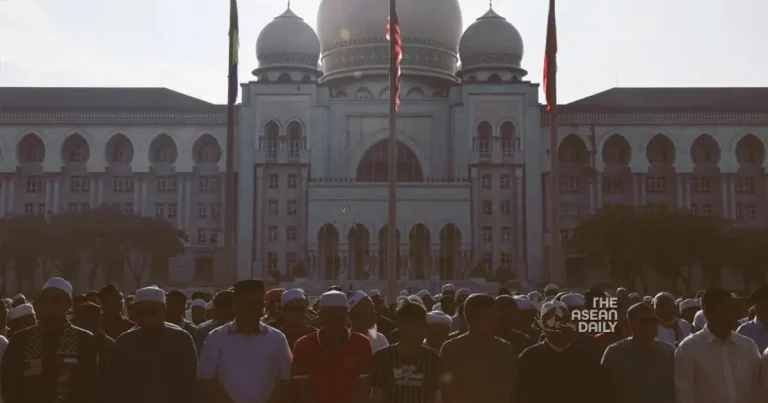10-2-2024 (KUALA LUMPUR) The Malaysian government and opposition leaders are scrambling to contain the fallout following a recent court ruling against Kelantan’s Syariah (Sharia) laws. The ruling, delivered by a nine-member Federal Court bench in an 8-1 decision, declared 16 laws in Kelantan’s Syariah criminal code “void and invalid.” These laws included provisions that criminalized sodomy, incest, gambling, sexual harassment, and desecration of places of worship.
Prime Minister Anwar Ibrahim emphasized that the court ruling had no connection to the federal government’s attempt to undermine the powers and position of Syariah laws in the country. The opposition Perikatan Nasional (PN) party, on the other hand, claimed that the decision had hurt the sentiments of Muslims in Malaysia and could weaken the authority of the country’s royalty.
Malaysia operates under a dual-track legal system, with Islamic criminal and family laws applicable to Muslims alongside secular laws. Islamic laws are enacted by state legislatures, while secular laws are passed by the federal parliament.
Chief Justice Tengku Maimun Tuan Mat, who delivered the majority judgment, stated that the Kelantan state had no jurisdiction to enact these laws, as the subject matter fell under the purview of the federal parliament’s law-making powers. She also emphasized that the court’s decision did not imply that the civil courts were undermining Islam or neglecting the strengthening of Syariah courts.
Political analyst Dr. Awang Azman Awang Pawi of Universiti Malaya warned against the issue being politicized based on groundless claims. He stated that the PN party might exploit the situation for political gain, despite their lack of understanding of the constitution.
The ruling sparked demonstrations, with approximately 1,000 protestors, many of whom were opposition supporters, gathering outside the Palace of Justice in Putrajaya to hear the court’s decision. Malaysia’s population is predominantly Muslim, with Muslims constituting nearly two-thirds of the total population.
Prime Minister Anwar Ibrahim dismissed the notion that the ruling was an attempt to discredit the government, emphasizing that it was purely a matter of delineating powers between the federal and state governments. He criticized the opposition for exploiting the issue to create a false sentiment among Muslims.
Minister in the Prime Minister’s Department (Religious Affairs) Dr. Mohd Na’im Mokhtar assured that the court’s decision did not undermine the position of the Syariah courts, as their strength was guaranteed in the constitution. He also pledged to promptly convene all stakeholders involved to discuss and assess the next steps for empowering the courts.
Opposition leader Hamzah Zainudin, the secretary-general of PN, expressed concern that the ruling had infringed upon the rights of Muslims to practice their religion. He claimed that the decision could potentially challenge Syariah criminal laws in all states, putting them at risk of being nullified. He further stated that the ruling could erode the authority of the Malay rulers and requested audiences with the Malaysian King and the ruler of the Selangor state.
Both sides urged all parties, regardless of political affiliation, to collaborate on the issue. The court ruling has ignited a heated debate about the role of Syariah laws and their relationship with Malaysia’s legal framework, with the government and opposition grappling to address the ramifications of the decision.
The Malaysian government and opposition are now faced with the task of managing the aftermath of the court ruling, aiming to strike a balance between upholding constitutional principles, respecting religious rights, and maintaining social harmony in a diverse society.




